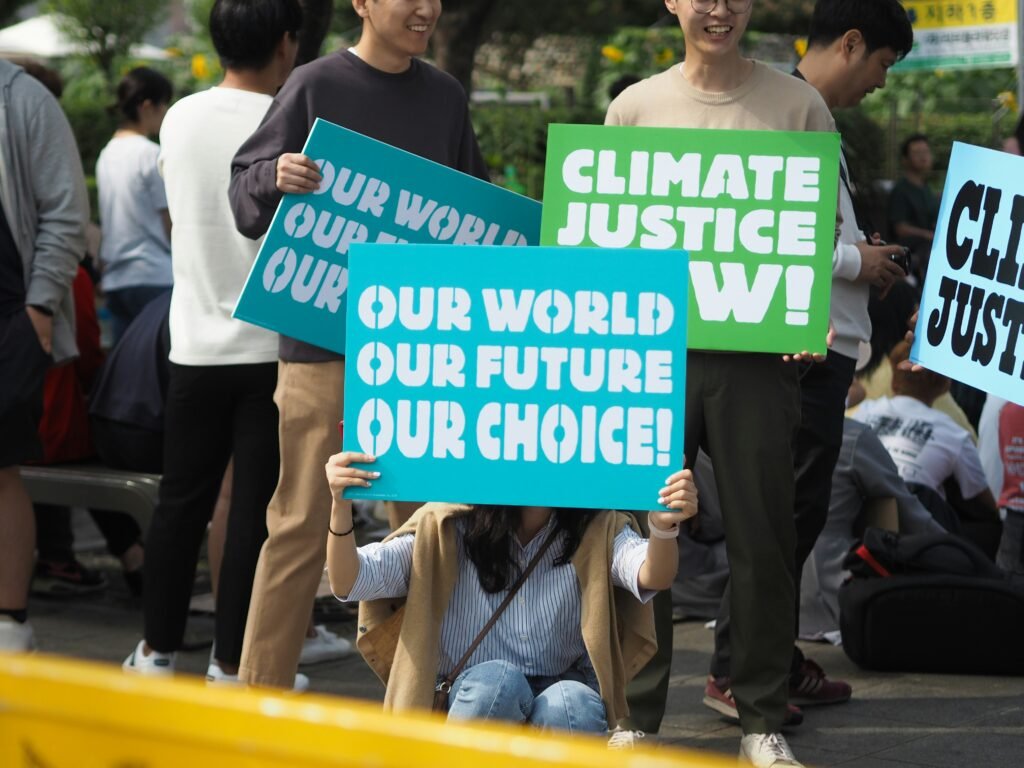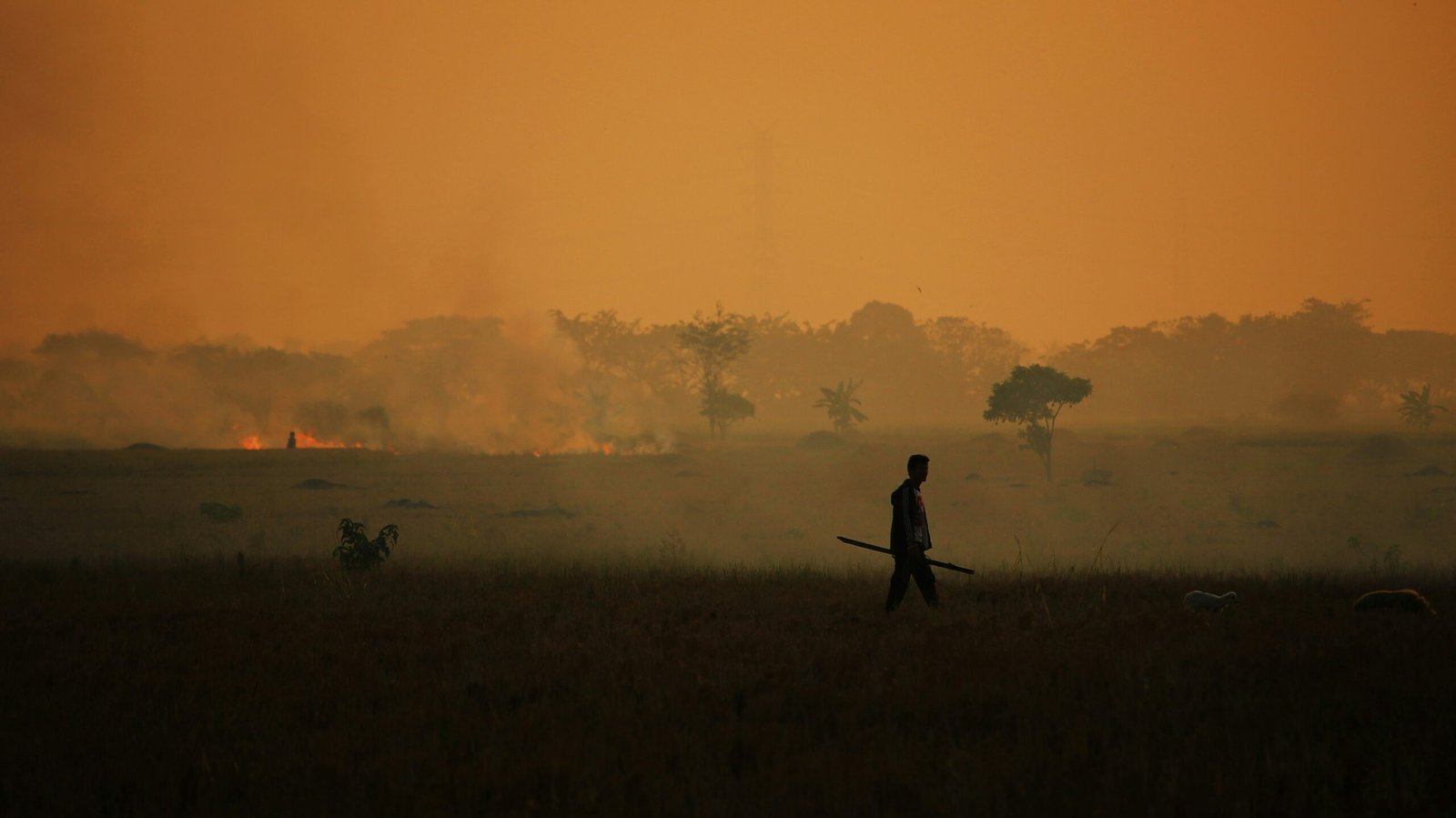The foundations of international climate governance were laid in the early 1970s, with the landmark 1972 United Nations Conference on Human Environment in Stockholm. It is regarded as the first international event that links environment and development, and tackled issues such as deforestation, desertification and water scarcity. The event marked the beginning of global climate governance. In the decades that followed, concepts such as sustainability started to emerge and be defined legally: in 1987, the World Commission on Environment and Development published the Brutland Report that defines sustainable development in three core principles:
- Ecosystem integrity
- Sustainable use of resources
- Social equity
Institutional backing for environmental governance solidified with the Earth Summits in Rio de Janeiro (1992) and Johannesburg (2002), the launch of the UN Millennium Development Goals, and their 2015 update as the 2030 Agenda. Sustainable Development Goals cover a wide range of issues, including:
- Protecting the environment and tackling climate change
- Ensuring good health and well-being
- Promoting quality education and gender equality
- Promoting economic growth and decent work
- Reducing inequality and promoting sustainable consumption and production
- Strengthening partnerships for development
- Ending poverty and hunger
Tensions in Baku
Meanwhile, the annual UN Climate Change Conferences (COP), central to climate diplomacy, continue to shape policy discussions and generate public outcry—most recently in Baku, where the focus turned to climate finance, with the pledge to allocate $300 billion annually by 2035 to global south countries (a mixture of grant, loan and development bank funding). It may seem like a grand sum, but compare it to the $5-7 trillion in subsidies the world’s governments give to fossil fuels every year. The figure of $300 billion is “abysmally poor” compared with what is needed, in the order of the trillion, to adequately address the environmental crisis.
COP29 in Baku drew sharp criticism, as the limited commitments reached were seen as shifting the burden of climate change onto those least responsible yet most affected, the Guardian reports. The summit was marked by diplomatic and political shortcomings, including allegations from human rights organizations that the Azerbaijani government suppressed environmental activists and silenced political dissent. This marks the third instance in which a host nation has faced accusations of repression and of undermining the right to protest.
The Intergovernmental Panel on Climate Change’s role
Another key organisation at the centre of global environmental governance is the Intergovernmental Panel on Climate Change (IPCC), founded in 1988 by the United Nations. Tasked with providing policymakers with rigorous scientific assessments on climate change, its implications and risks, as well as to put forward mitigation and adaptation options, the IPCC operates in three working groups (the first addressing the science of climate change, the second its impacts, adaptation and vulnerability, and the third its mitigation). The IPCC underlines its will to remain policy-relevant but not policy-prescriptive: however, its assessments aided in the decision to transition away from fossil fuels in energy systems as agreed at COP28 in Dubai.
Controversy surrounding the IPCC 7th Assessment Report
The latest IPCC session was held in Hangzhou, China, in February 2025 to outline the seventh Assessment Report (AR7), and its timing, which remains pending. Controversy was rife, as several countries pushed for the panel to address contentious marine geoengineering methods, such as introducing alkaline materials into the ocean to raise its pH and potentially enhance its ability to absorb carbon dioxide, a technology whose side effects are unknown and potential risks are immense, leading many governments to block the proposal.
“Political neutrality may no longer be an option”
In recent years the IPCC has strived to include more diverse experts, including indigenous voices, global south scientists and activists. However, they still remain the minority, thus risking exacerbating existing inequalities and injustices. The IPCC’s firm political neutrality stance and its commitment to consensus, has been criticised for often obscuring dissent.
As the world approaches the next COP summit in Belém, Brazil, global climate governance is at a turning point. More than five decades after the Stockholm Conference, the structures for international cooperation on climate and environmental issues are in place—but so too are deep political, scientific, and ethical tensions, as the inclusion of more diverse voices remains a work in progress, with real consequences for equity and environmental justice.
Whether global governance can evolve to meet the political nature of the environmental crisis will depend on the willingness of countries to embrace transformative action and place its most marginalised and disenfranchised voices at the centre of debate. In an era defined by compounding crises, the future of climate governance may hinge not just on science, but on who gets to speak, and who is finally heard.





